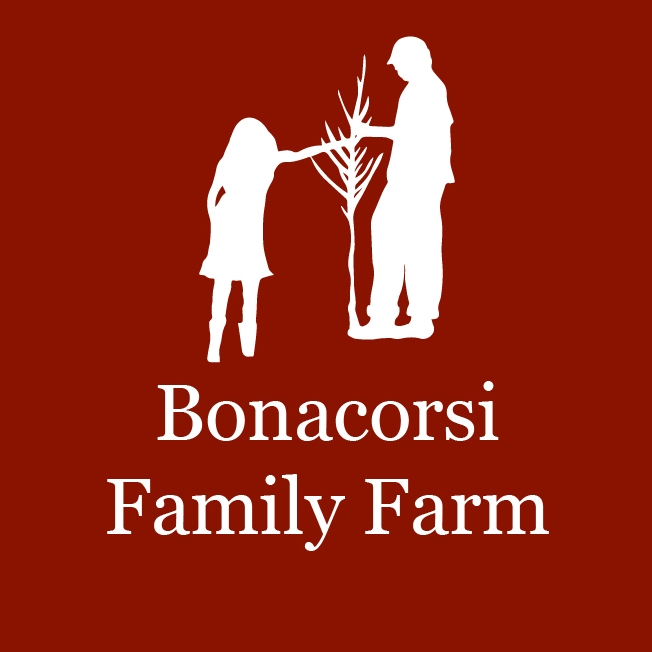Our Methods
Here at Bonacorsi Family Farm, farming is done with families in mind. This means making careful decisions about how best to use resources to produce healthy and delicious sustainable fruits and vegetables.
Below is a list of the most common questions we get from our customers. If the Q&A section below does not answer your question, please contact me by email or try to catch me at the farm. I will do my best to respond, but please understand that our small farm is family run and at times I am overwhelmed with all the work.

FAQ
Do you follow Integrated Pest Management guidelines?
Yes, I use IPM techniques as a way to prevent pests and their damage. These techniques are broad in scope with the goal of limiting reliance on chemical treatments. I focus much of my efforts on biological control, habitat manipulation, adaptive cultural practices, and use of resistant varieties. I am in the fields daily, scouting for pests in order to head off any issues before they get out of control. With crop rotation I match crops with the spots where they will best thrive. If monitoring indicates a pest problem, I consider all options including the judicious use of organic and sometimes conventional products.
Do you use GMO’s?
This is a frequently asked question and the easiest to answer. No. I do not grow any genetically modified varieties of produce on the farm. Most crops consist of older varieties selected for flavor and quality above all else.
Do you spray and what do you spray?
We get these related questions frequently. Keeping in mind that we follow IPM guidelines described above, there are times that Mother Nature doesn’t see things as we do.
I often remind people to think about a recent outdoor activity and to take note of the natural environment around them. Are there wild peach trees bent to the ground with juicy fruit? Have you ever lost a golf ball in a hedge row filled with plump strawberries or a thicket of potatoes? There are some plants that can survive in a natural state such as brambles, but varieties are limited.
This is where the farmer comes to the rescue. And, by farmer I mean our earliest ancestors who realized they could manipulate the plant environment to feed more people. Modern farming is no different in this regard. We have an arsenal of organic and conventional chemicals along with biologicals to help combat naturally occurring diseases and insect pests. However, we do appreciate the concern many of our customers have around pesticide use and use conventional chemicals as a last resort and at the lowest rates needed, following the label guidelines.
I am able to solve most of our pest problems with organic products or by simply recognizing that the damage is minimal and choosing not to spray. For example, if I notice Japanese beetles eating our raspberry bushes while they are still bearing fruit, I will not spray. Fast forward to November after picking has ended, there is a wonderful opportunity to control weeds in the same raspberry field, so I will apply conventional herbicides following the manufacturer label. We encourage our children to eat fruits and vegetables from the farm throughout harvest. The decisions around pesticide use are all heavily influenced knowing our little ones will be out in the field enjoying the produce.
What are you doing to be sustainable?
I practice soil conservation techniques whenever possible. Use of fertilizer is limited to the minimum needed to correct depleted elements in the soil. As mentioned above, crop rotation is practiced to minimize the buildup of crop specific pathogens. I plant flowering plants to attract beneficial insects, and cover crops to help build the soil. One example is sunflowers. They attract pollinators to the farm, are an excellent source of pollen for the bees, reduce nematodes in the soil, and provide a tasty treat to the local birds, chickens and pigs.
